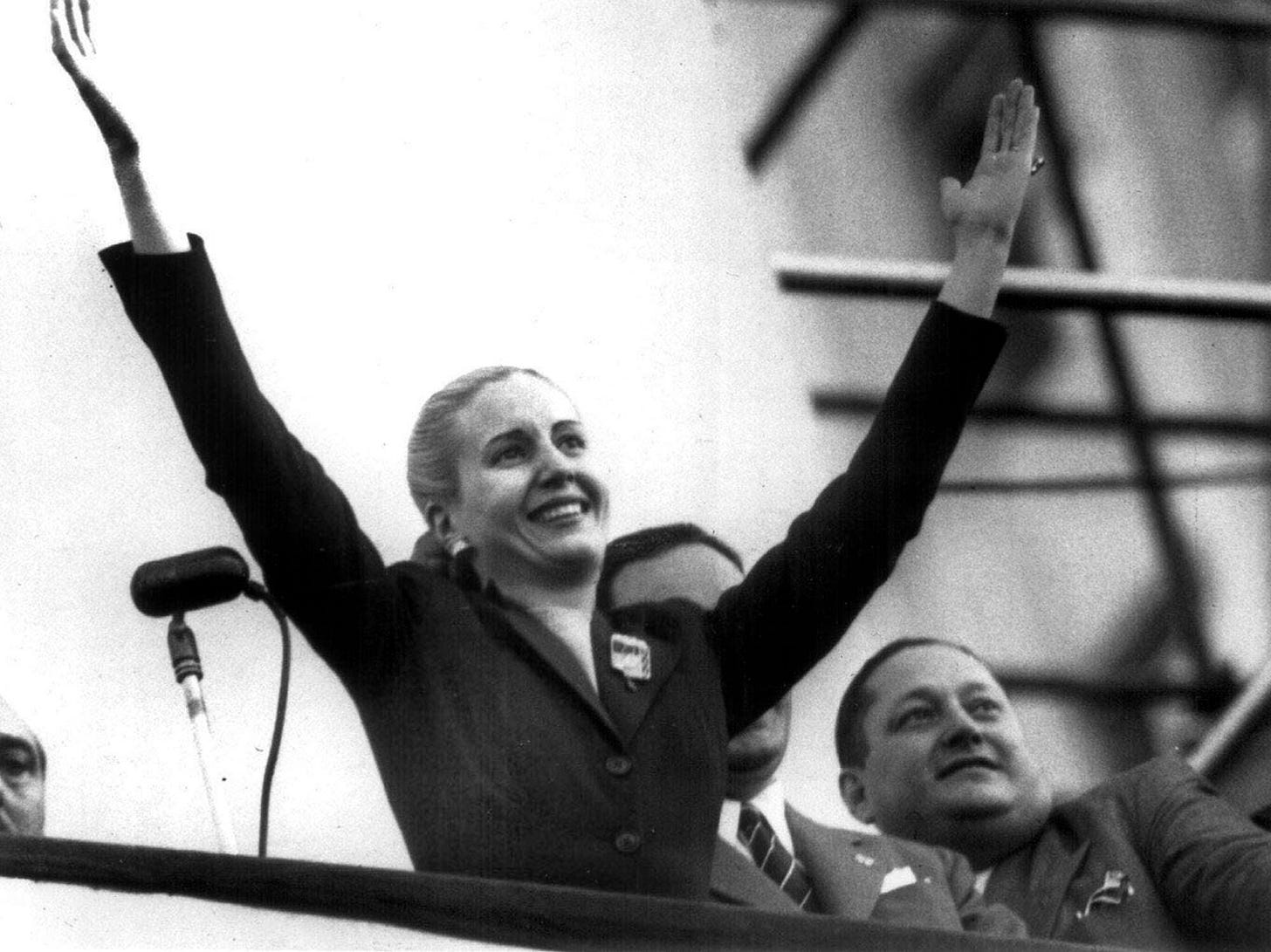Letter 26 - How Did She Become A Legend?
Ginny here…
Have you wondered what it takes for someone to become a legend?
Personally, I think a legend is born when a Bregdan Woman cares more for others than for herself – giving all she can to make a difference in the life she lives.
Eva certainly did!
Eva delighted in the love and cheers of the crowd. She couldn’t believe it was all for her. “I’ve come such a long way,” she thought to herself. As she smiled and waved to the sea of faces in the courtyard below, she let her mind float back over time. . .
Eva Ibarguren Duarte was born in 1919 as the 5th child to an unwed mother. Although the law frowned upon illegitimate children, it wasn’t unusual for wealthy men to have several families in rural areas of Argentina at that time.
When Eva was one year old, her father returned to his legal family leaving Doña Juana Ibarguren and her family impoverished.
All Juan Duarte left to his “illegitimate” family was a document declaring the five children were his so they could bear his last name. Doña Juana was reduced to living in the poorest part of town and supporting her children by sewing clothing for neighbors.
Eventually, Eva’s older brother moved the struggling family into a larger house which they turned into a boarding house and restaurant. They all worked hard but they were together. It was during this time that Eva became enthralled with acting and participated in all of her school’s plays and concerts.
Her world almost crumbled into dust when she discovered her mother planned to marry her off to one of the boarders in their house.
Eva begged and cajoled her mother to release her from the marriage and allow her to go to the big city of Buenos Aires. “Mama, please – there is no future for me here,” she pleaded. “Come with me!”
Eva’s mother finally gave in and accompanied her daughter to the big city where Eva was hired as an actress at a radio station.
Her chance had come.
Changing her name to Evita, she spent the next 9 years working in radio productions. She did theater, modeling and made movies. But radio (there was no TV in Argentina yet) was where she thrived. Evita became one of the highest paid radio actresses in Argentina.
Evita was suddenly pulled from her reverie. The crowd was chanting her name. She lifted both hands to her mouth and dramatically threw kisses to the adoring throng. Their roar dimmed as she remembered the first time she saw her husband – the man whose side she’d never left for the past 7 years.
A devastating earthquake had mobilized Colonel Juan Perón, Secretary of Labor to establish a fund for the victims. As a fundraiser, he organized an “artistic festival” and invited radio and film actors to participate. It was during the festivities that Juan Perón met and fell in love with Eva Duarte. They became inseparable.
Eva and Juan were married in December 1945, the year the Labor Party chose Perón as their candidate for President. For the first time in Argentina’s history, a candidate’s wife campaigned and traveled with him.
Evita threw herself into her new purpose. At each stop along the campaign trail, Eva handed out buttons and personally greeted the people. She even represented him when Juan was too ill to speak.
When Perón assumed the Presidency, unlike other first ladies, Evita chose to take an active political role. She immersed herself in serving her country. She devoted her tireless energy to the disadvantaged, the working class, the elderly, children and women.
She was instrumental in getting women the vote in 1951.
In 1950, Evita was diagnosed with cancer, but she refused to slow down. She seemed to know that she must use every ounce of her energy and time left in order to leave behind the legacy she dreamed of.
She created medical clinics for the workers, distributed subsidies to the poor, as well as clothing, food, and household goods.
She created entire neighborhoods of affordable housing, school food programs, jobs for the unemployed, equipment for hospitals, water and sanitary facilities for low-income neighborhoods, and pensions for people over 60.
As amazing as this is, it is just a tiny, tiny list of her vast accomplishments.
Evita became a legend in her own time. She had a heart of gold, but a will of iron – she let nothing stand in her way.
The people adored her because she loved them.
As her life was coming to an end, Evita still worked as many as 20 – 22 hours per day in her foundation. She ignored all requests to slow down and take time off.
The more she worked with the poor in her foundation, the more she adopted an outraged attitude toward the existence of poverty. In her words, "Sometimes I have wished my insults were slaps or lashes. I've wanted to hit people in the face to make them see, if only for a day, what I see each day I help the people.
Evita was so immensely popular, that her husband tried to convince her to run for vice-president. Perhaps he saw, better than she did, just what an immense impact she was having on Argentina.
Evita declined the invitation to run for vice-president. She said her only ambition was that in the large chapter of history to be written about her husband, the footnotes would mention a woman who brought the "hopes and dreams of the people to the president", a woman who eventually turned those hopes and dreams into "glorious reality".
On her 33rd birthday, May 7, 1952, she was given the title of “Spiritual Leader of the Nation”.
Evita knew she was dying. By June 1952, was emaciated, weighing only 79 pounds. When she rode with her husband in a parade after his reelection, she was unable to stand without support. Beneath her oversized fur coast was a plaster and wire frame that allowed her to stand. She took a triple dose of pain medication before the parade and took another two doses when she returned.
Argentina lost their Spiritual Leader on July 26, 1952.
Evita was only 33 when she died of cancer.
Argentina went into a time of deep mourning. The streets overflowed with mourners. Popular grief was overwhelming. The streets of Buenos Aires were buried under huge piles of flowers. Within 24 hours, all flower shops in the city had run out of flowers. They were flown in from all over the country and South America.
Evita never forget what it felt like to be poor. She knew what it meant to work hard. She understood how it felt to be discarded, criticized, and degraded. When she found herself in the position of being able to make a difference for others, she threw herself into it with all she had. What she accomplished in 7 short years was remarkable.
You are not expected to do what you cannot do – you are only responsible for doing what you can.
When you find yourself in the position of being able to stand up and make a difference, be like Eva Perón and do everything you can to make it happen.
It can be on a large stage, or it can be a small one where no one but you will ever know what you did.
A small stage doesn’t make your actions any less impactful! You have no idea how the ripples of your actions will play out over time.
Be a Bregdan Woman who lives with passion and purpose.
What will you do today to impact history??
We’re on this journey with you… (And have 2 Free Gifts for you below!)
Ginny & Suess
CLICK THE IMAGE BELOW TO CLAIM YOUR GIFTS!





Yes.. It's proud to be a legend.